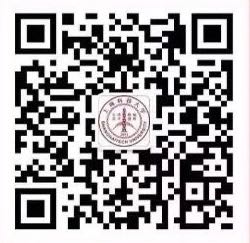Speaker: Gengchiau Liang,National University of Singapore
Time: 10:30-11:20am , Dec.15
Link: Zoom Meeting ID: 846 7931 0817 Passcode: 345098
Host: Zhifeng Zhu
Abstract:
Some of the brightest minds in electronics engineering have been defeating the “persevering prediction” of the end of Moore’s Law for nearly three decades now. Unto a decade ago, scaling down the transistor size had helped to simultaneously scale down the cost, decrease the transistor area, pack more functionality on a die, increase the transistor speed, decrease the load and input capacitance, decrease the voltage and energy consumption per bit operation, until the microelectronics hit the power-wall. Especially, the recent development of electronic device applications is continuously becoming more strongly connected with the advent of the Internet of Things (IoT) and machine-to-machine (M2M) communication. These are especially critical for power management to reliably process increasing data for longer periods. Therefore, developing low-power consumption devices, even for non-volatile electronics, is important for future device applications.
In this talk, therefore, I shall first introduce the up-to-date development of ultra-low-power consumption and high-performance devices by applying novel functional operation principles and channel materials, such as 2D layered material FETs, tunneling FETs, and negative capacitance FETs. Then, I will briefly discuss device physics and the performance of these devices as well as the challenge from the practical considerations. Lastly, the ultimate solution to overcome OFFs-state operation power by using non-volatile electronics (NVE) operated-based spintronics including the applications on unconventional computation schemes, i.e., stochastic computing, will be introduced. Also, their potential applications and challenges in the future information and computational system will be briefly addressed.
Bio:
Dr. Gengchiau Liang received B.S. and M.S. degrees in physics from the National Tsinghua University, Taiwan, in 1995 and 1997, respectively, and a Ph.D. degree in electrical and computer engineering from Purdue University in 2005. He joined the Department of Electrical and Computer Engineering at the National University of Singapore as an assistant professor in 2006. Currently, he is the associate professor, the supervisor of computational nanoelectronics and emerging device group, the director of computational nanoelectronics and nanodevice laboratory as well as serves as an area director of microelectronic device and technology in ECE at NUS. His current research topics are focused on modeling and theoretical investigation of advanced 2D materials/devices, non-volatile electronic system-based spintronics, low-power consumption devices, and nanoscale FETs. He also served as a committee member for the nanotechnology committee under IEEE EDS and a guest editor of IEEE TED (Special Issue on 2D materials and Devices).



 沪公网安备 31011502006855号
沪公网安备 31011502006855号


